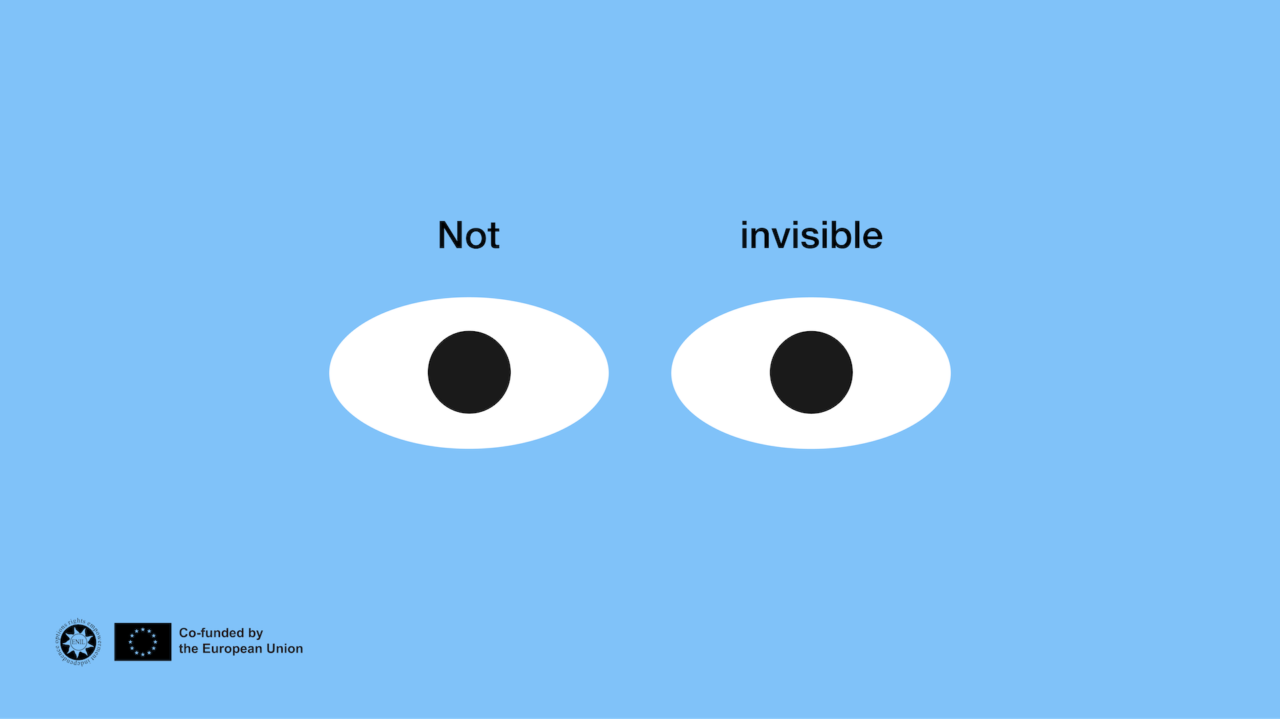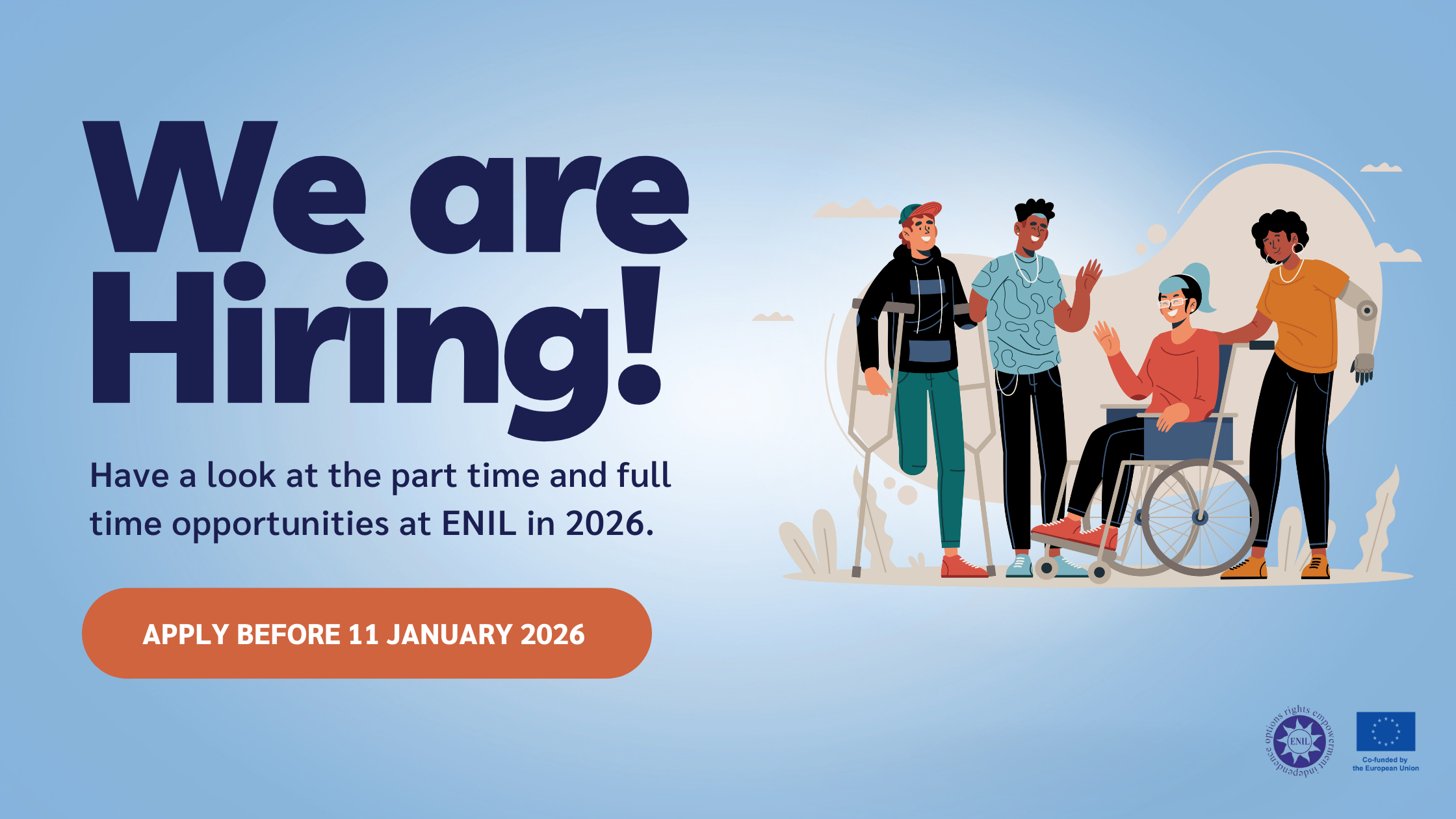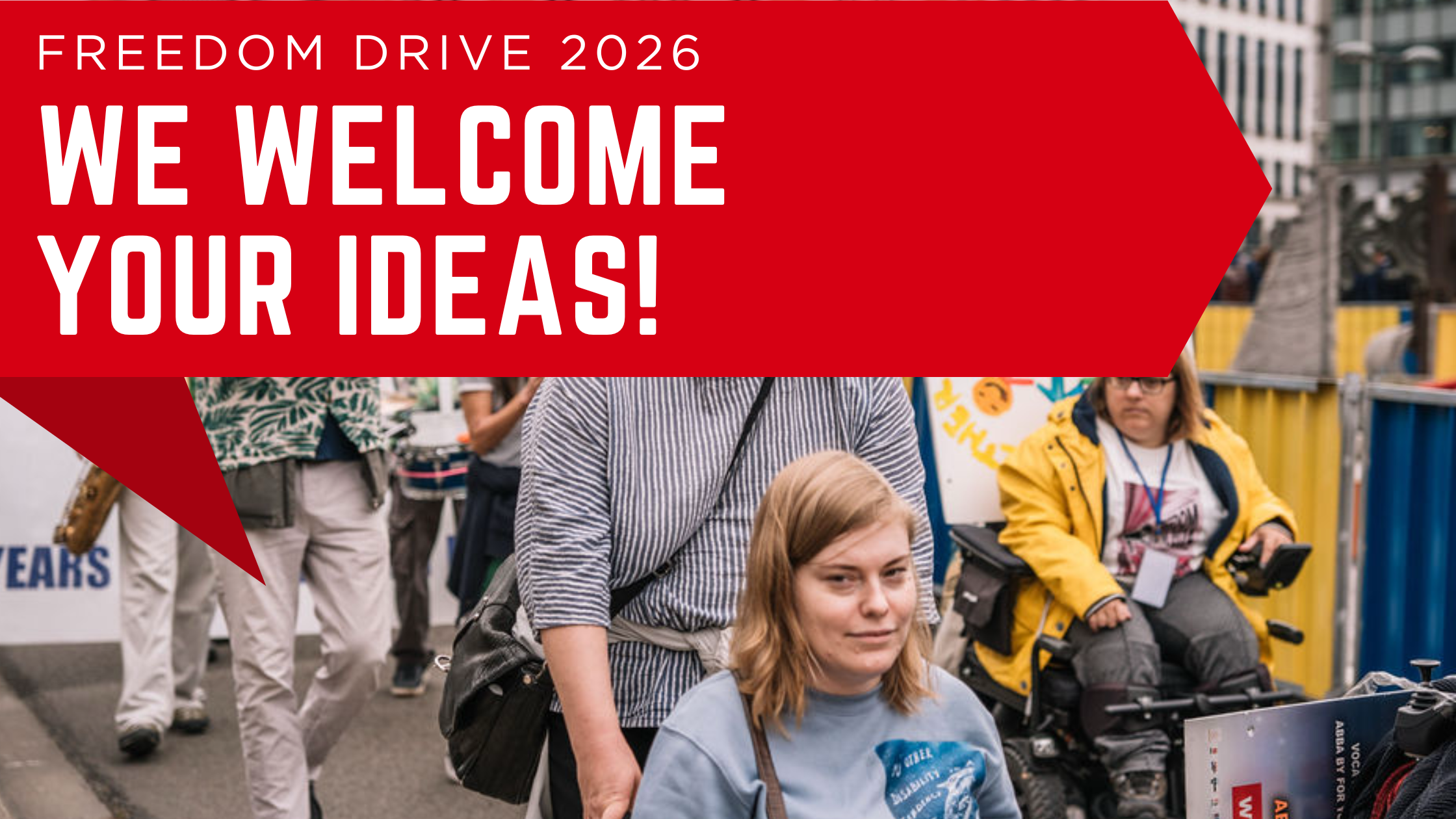In celebration of Neurodiversity Pride Day on June 16, Autism-Europe stands proudly in leading advocacy for the rights and visibility of autistic people.
Pride is a celebration of self and of community. It is a rejection of shame and social stigma. This important awareness day uplifts principles of humanity and diversity. Neurodiversity pride day is a demand to be seen!
Autism-Europe’s multiannual campaign, ‘Not invisible’ resonates deeply with the message of Neurodiversity Pride. This new campaign aims to shine a light on the often overlooked and invisible barriers that autistic people face daily. It is also a call to recognise and value the strengths that autistic people can bring to society. ‘Not invisible’ is a Europe-wide push to ensure that autistic people are seen, heard, supported, and included at every level of society.
What are the ‘invisible’ barriers
Autistic people face discrimination and obstacles that are not immediately apparent to others.This means that their needs are often made invisible in many areas. These invisible barriers include societal prejudices, lack of understanding and acceptance, and insufficient accommodations in different areas of life. We aim to dismantle these barriers and build an understanding in society so that the needs of autistic people are addressed and supported. Recognising these barriers is key to achieving full enjoyment of human rights in line with the United Nations Convention for the Rights of Persons with Disabilities (UNCRPD), ratified by almost all Council of Europe member states as well as the European Union as a supranational organisation.
Ensuring visibility and participation
Visibility goes beyond awareness and acknowledgement. It demands inclusion and representation in all aspects of life. This encompasses respect of legal capacity, political participation, voting rights, and access to education and employment, as well as necessary support services. This is essential if we want to meaningfully move away from segregation and institutionalisation of people with disabilities and towards community-based support systems that promote independent living for all.
Autism-Europe advocates for the inclusion of autistic people, their families, and representative organisations in decision-making processes that affect their lives. In 2024, with the launch of our ‘Not invisible’ campaign we are fighting for autism representation in the context of the European elections and beyond, notably by inviting MEPs and MEP candidates to sign our pledge in support of autistic rights. The pledge is a commitment by candidates to uphold and promote the rights and needs of autistic people and their families and cooperate with them and their representative organisations in their upcoming mandate.
Autism acceptance within society (inclusion in the community)
Understanding autism is key to addressing and supporting the needs of autistic people. Society must be educated about the diverse experiences of people on the autism spectrum. This includes providing training for educators, employers, and healthcare providers among others to ensure they are equipped to meet the unique needs of autistic people.
Autism-Europe calls for a holistic approach that considers the physical, emotional, and social well-being of autistic people. Support systems should be tailored to individual needs, promoting independence while ensuring that necessary assistance is available.
Lack of understanding impacts the lives of autistic people drastically across the community, as highlighted with the recent Directive on the Disability Card, which is a landmark achievement for the disability movement in Europe. Due to lack of access to diagnosis and barriers to get a disability assessment, many autistic individuals will be denied the benefits and rights that are linked to this initiative. This especially impacts the more marginalised members of the community. Autistic and neurodivergent women and girls, queer people as well as national and ethnic minorities on the autism spectrum are historically and persistently ignored. Indeed, for example, it is now widely evidenced that the lack of understanding of how autism presents in women leads to under and misdiagnosis, and in turn a lack of access to adequate support.
Mobilising Policymakers for Change and EU Elections
The 2023 European Parliament Resolution on harmonising the rights of autistic persons marks a significant milestone in our advocacy efforts. This resolution underscores the importance of equal rights and non-discrimination for autistic people across Europe. Among the recommendations is a full inclusion of autistic people in society, a call for mutual recognition of autism diagnosis across all EU Member States, and a prohibition of forced sterilisation of autistic girls and women as well other harmful practices.
One of our key objectives is to mobilise policy-makers at all levels to take meaningful action to achieve the resolution’s goals. As we approach the formation of the new European Parliament and European Commission, we urge policy-makers to prioritize the rights and needs of autistic people in their agendas. This includes investing in inclusive education, employment opportunities, and community-based support systems that empower autistic people to live independently.
#AutismNotInvisible
For this year’s Neurodiversity Pride Day, Autism-Europe would like to celebrate our community, its strength, and all that has been achieved so far while recognising the work that still needs to be done. We and our members and supporters remain committed to autism visibility and support within all aspects of life.
We encourage you to join our ‘Not invisible’ campaign and help us fight for a future where autistic people can live with dignity, independence, and pride.
For more information about Autism-Europe’s “Not invisible” campaign and how you can get involved, visit our website.



